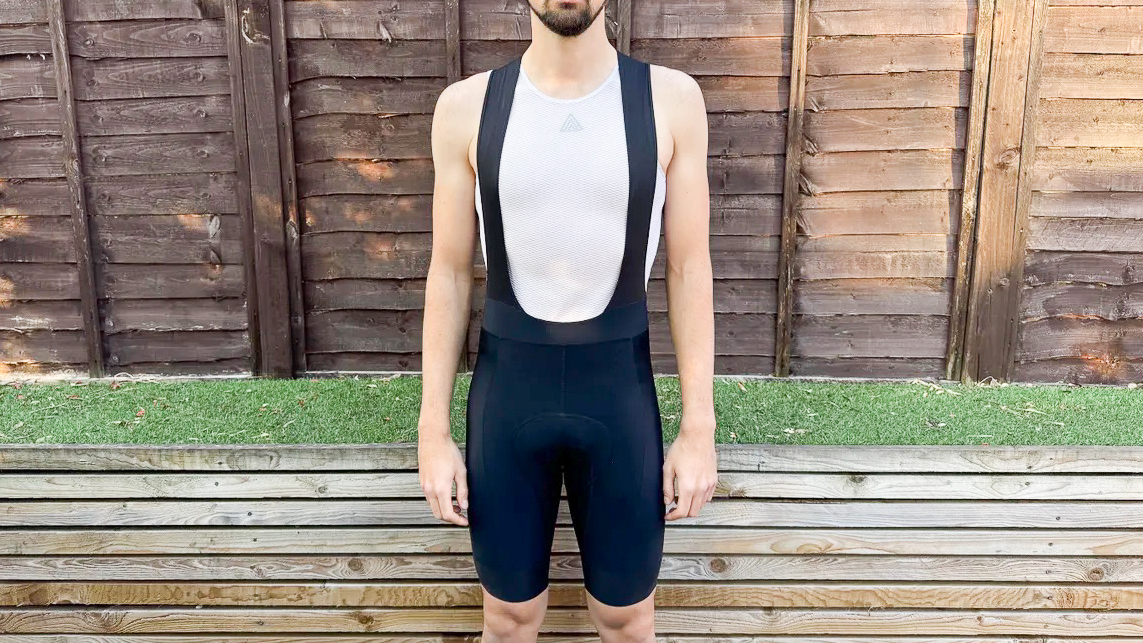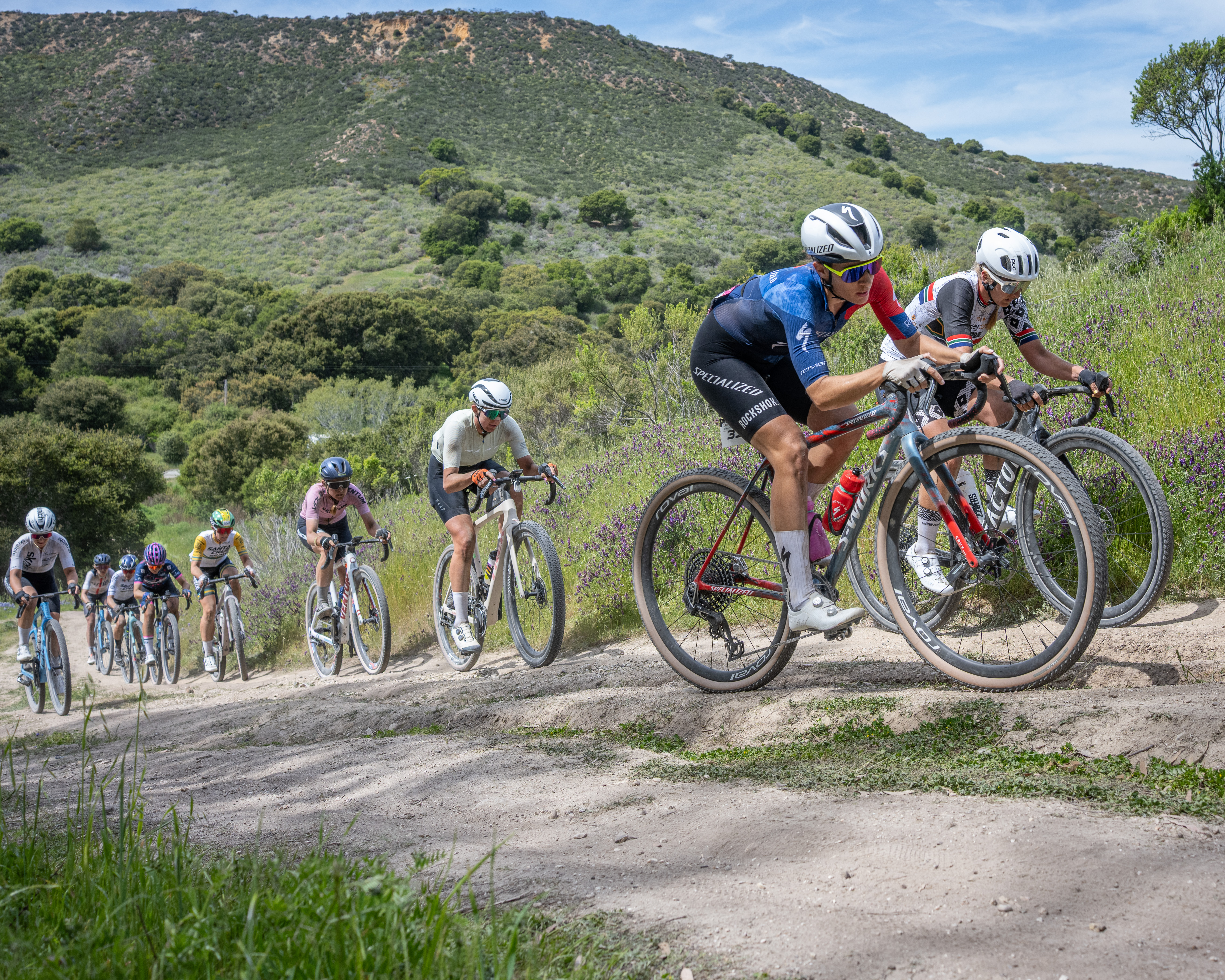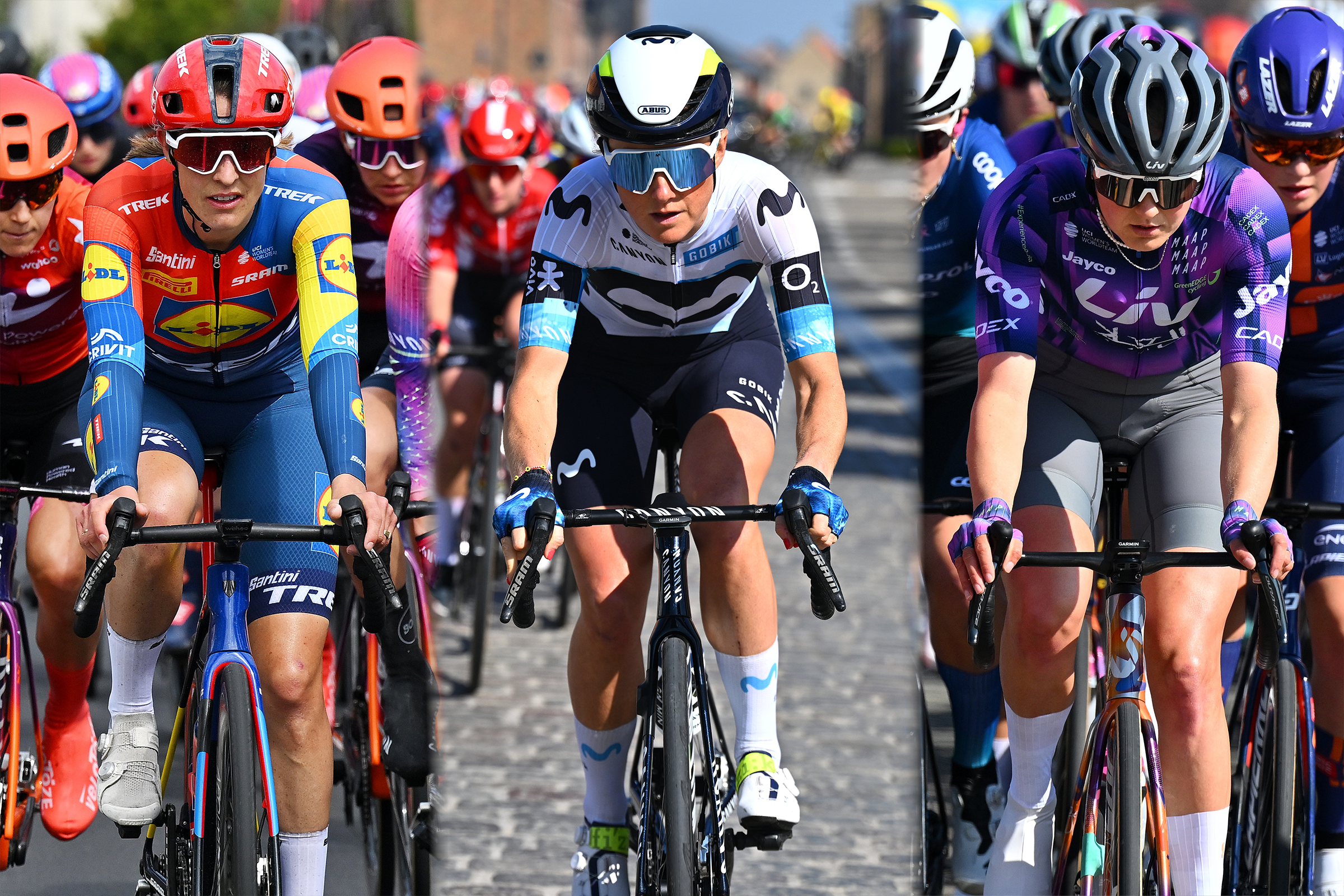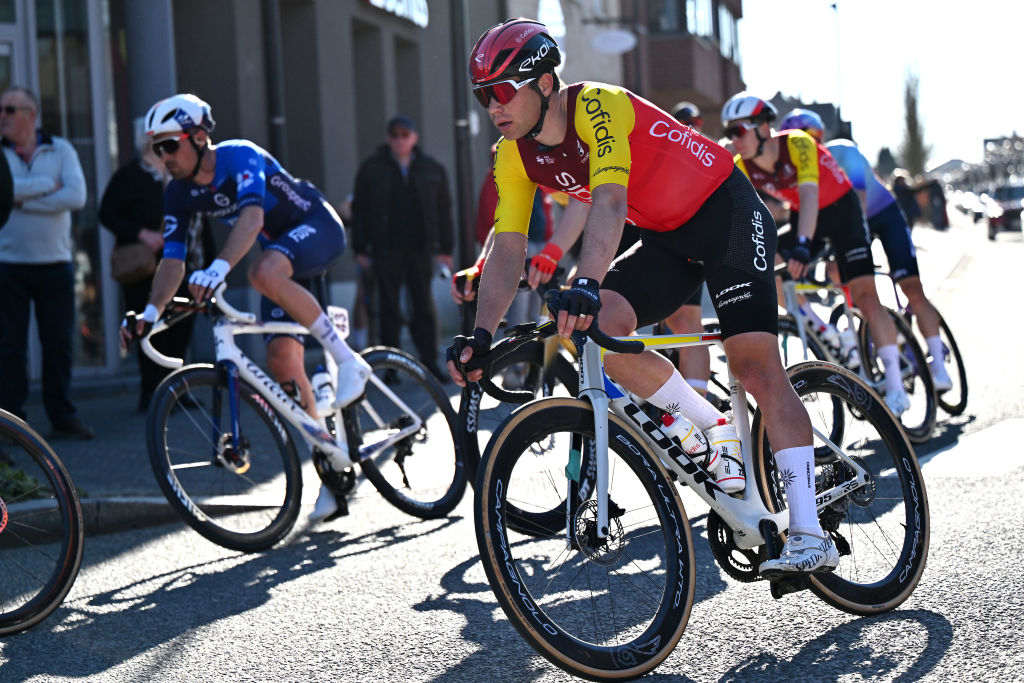Garate plays his vertical karate
If Juan Manuel Garate were going for his black belt today, he would have been awarded a...
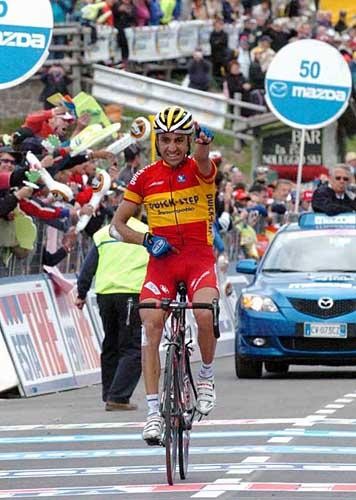
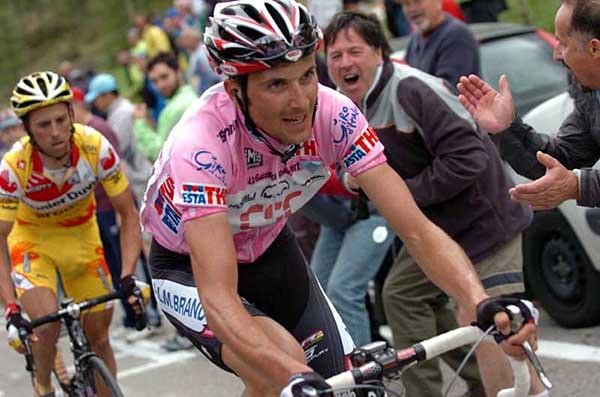
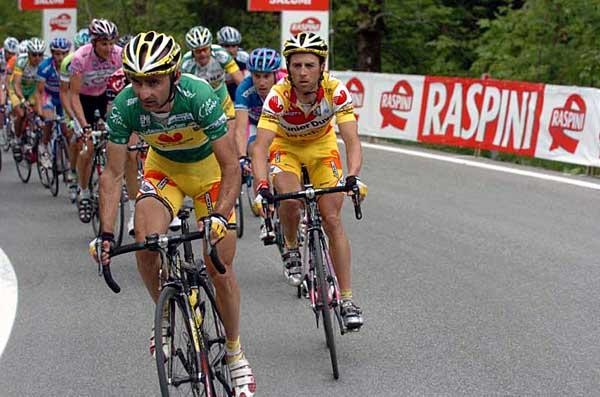

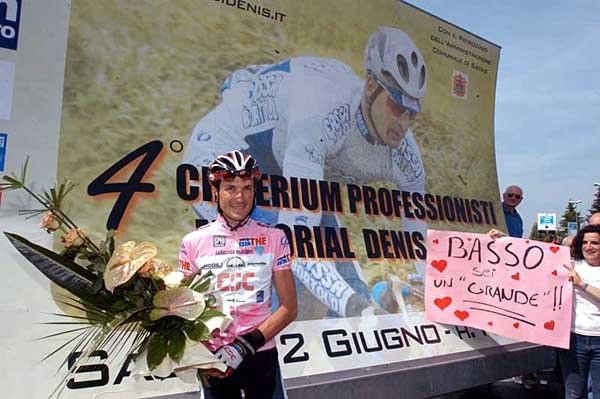
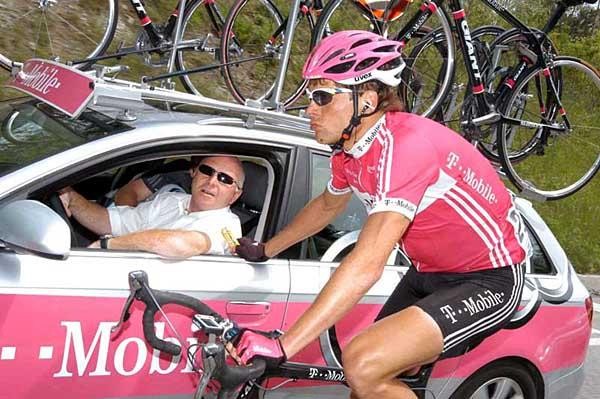
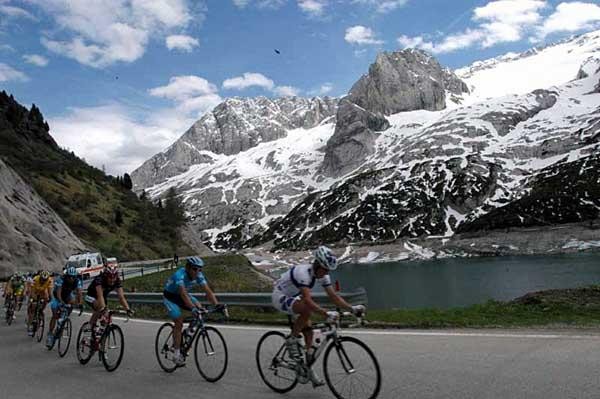
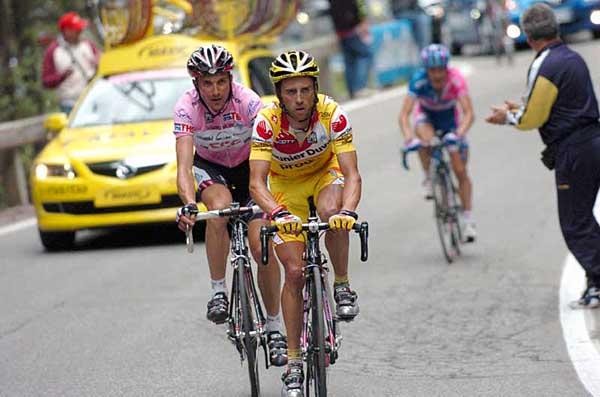
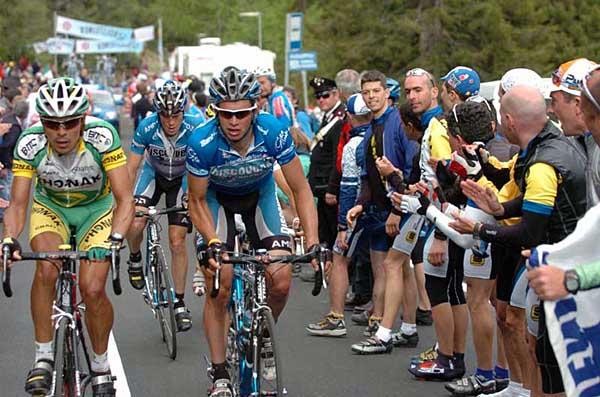
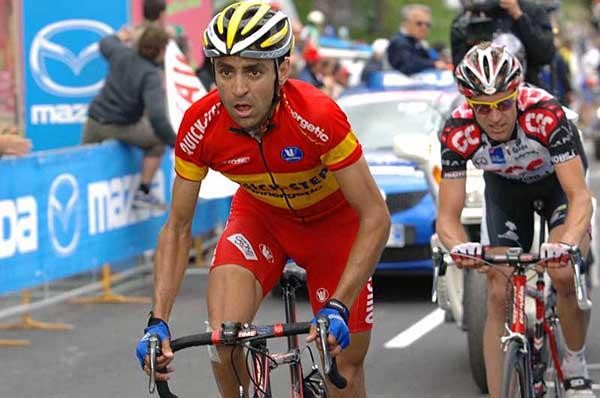


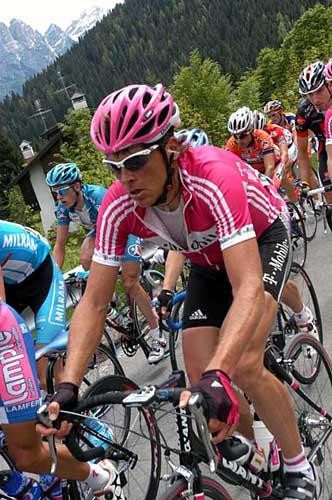
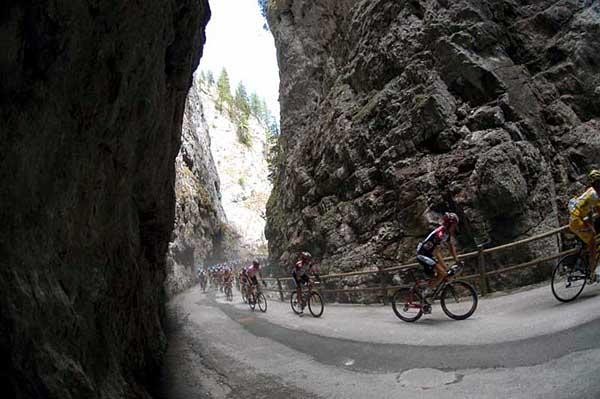
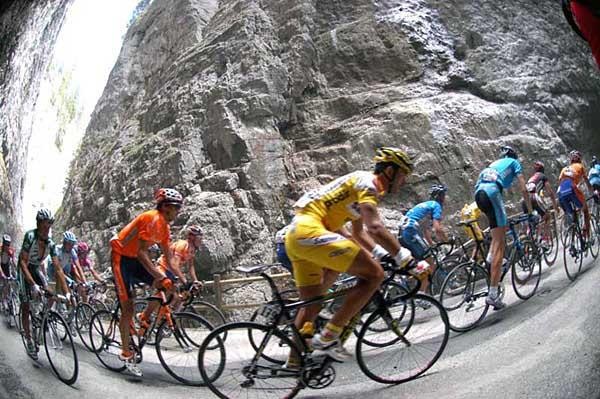
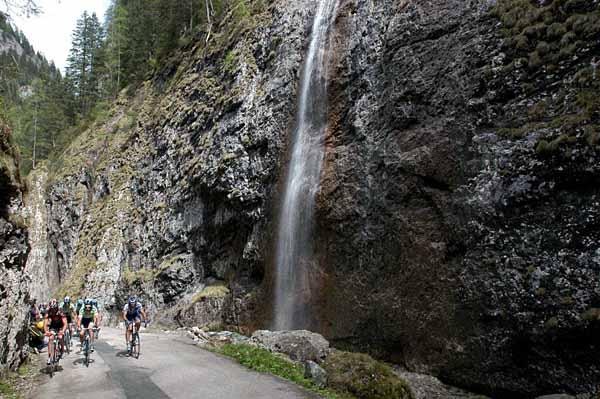



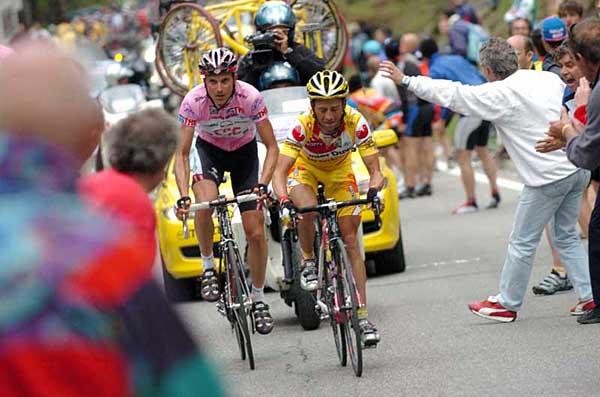

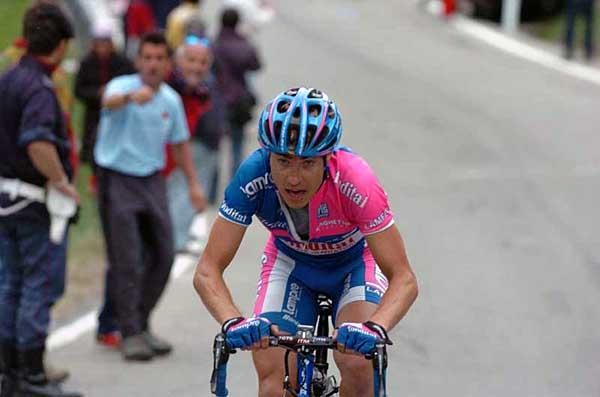

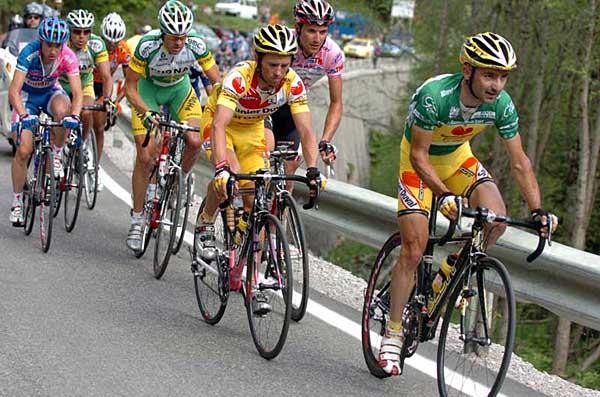
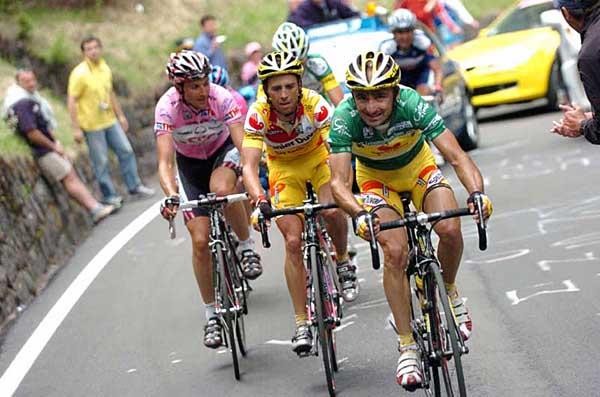

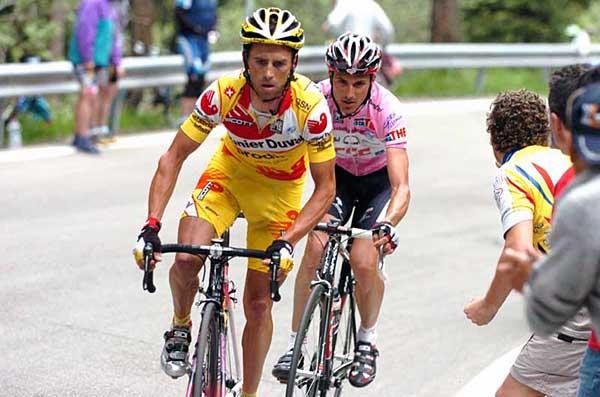
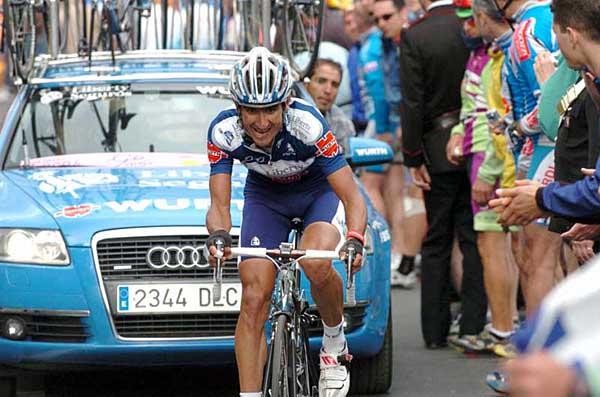
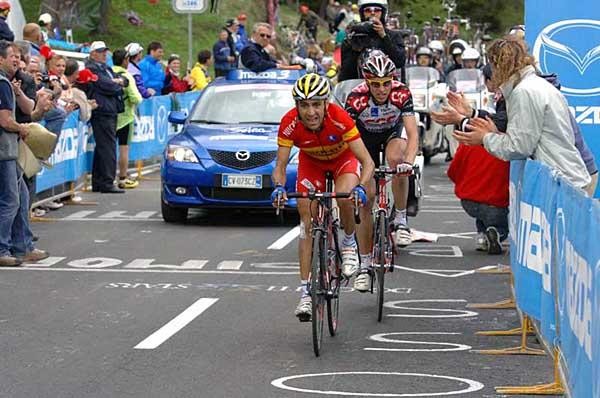


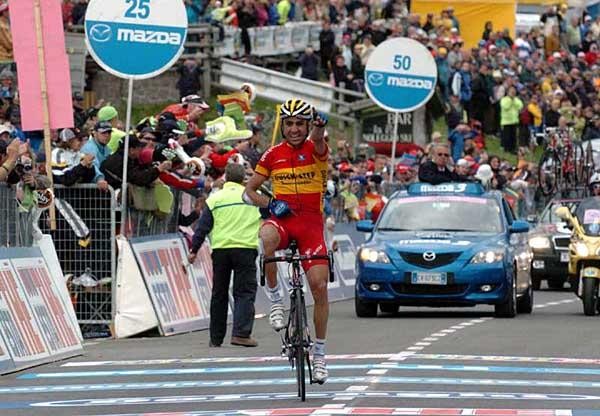

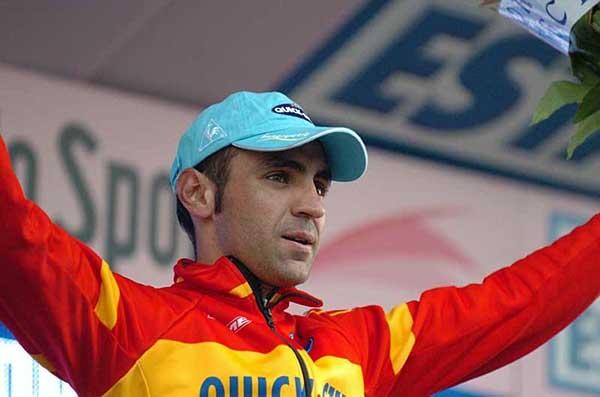
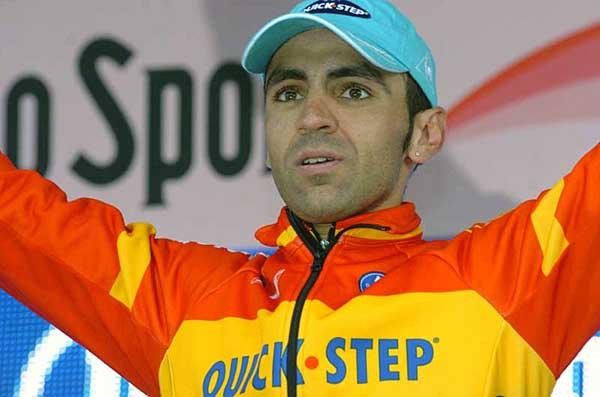
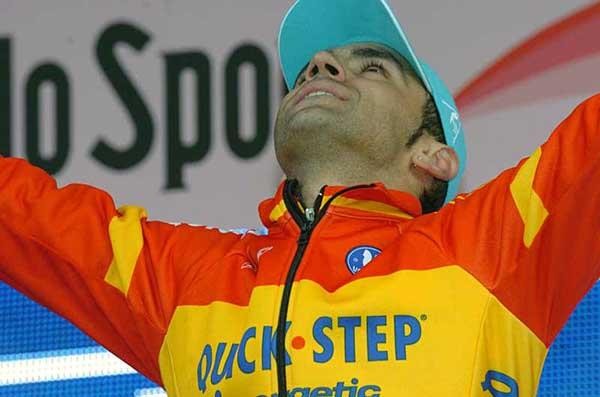
A day of strength, stamina and sportsmanship; podium all but decided
If Juan Manuel Garate were going for his black belt today, he would have been awarded a double-grading. Away for over 100 kilometres on arguably the toughest stage in the race, the 30 year-old Spaniard then counter-attacked his breakaway companions seven kilometres from the finish, before showing off his vertical karate to fly up the climb, dance past his rivals, and earn his first win for Quick.Step-Innergetic.
Garate's move came off an earlier attack from Slovenian Tadej Valjavec (Lampre-Fondital) and Jens Voigt (CSC), who attacked three kilometres earlier on the lower slopes of the Passo Di San Pellegrino. The latter, a noted non-climber but one of the best all-rounders in the game, displayed strength and stamina by hanging onto the Spaniard until just 300 metres remaining, until bidding his partner adieu in a very sportsmanlike gesture, patting Garate on the back and shaking hands.
"When I attacked at seven kilometres to go and caught Voigt, he immediately told me that he didn't want to sprint. So I made my own pace and didn't attack [Voigt]," explained Garate.
"Voigt worked a lot in the break today, and he certainly would have been very happy to win, but he showed there are other values and there is respect [between riders] in the race. He made a very nice gesture, and I think it is good for cycling... I will not forget what he did - he is a great champion and a great personality."
Said Voigt: "I was always sitting on the back of the attack, but I couldn't win today because I didn't work at all. You can only win if you are the strongest and it wouldn't have been right if I did."
Added his team-mate and maglia rosa Ivan Basso, whose wife Micaela gave birth to a son Santiago at ten past nine this morning: "He [Voigt] is a great person, always very correct. The team showed today we respect all the riders; all riders at this Giro have made a lot of sacrifices to be here. This Giro has been very difficult; there has been a lot of competition, the average speed is very high, everybody wants to do well, so we have to respect the other riders."
Also the best-placed rider on GC in the break, fifteenth at the start of the day, Garate leapfrogged into the top ten courtesy of today's audacious win. Although some way behind the maglia rosa in eighth overall, 16:40 behind Basso, the current Spanish road champion has an outside chance to break the top five before Sunday's finish in Milano.
Asked for his opinion on the ugly events unfolding in Spain, Garate said: "I'm not following what's happening, but it's a disaster in Spain, a disaster for cycling. But I'm not able to say any more about it, because I'm very focused on my race and focused on the Giro. In Spain until now, there wasn't a law about doping and now there is, so the changes are coming... "
Back in the gruppo maglia rosa, Gilberto Simoni's sidekick Leonardo Piepoli played a big part in Saunier Duval's attempt to ruffle Basso's feathers, the double-stage winner providing the perfect platform for a predictable counter. Though predictable it might have been, Simoni's repeated accelerations inside the final five kilometres saw all but Basso drop off the pace, as the man in pink sat on, seemingly unperturbed, with the pair crossing the line two and quarter minutes behind Garate.
"It's been a really hard Giro so far and today, it was an animated race. It's wasn't an easy stage today!" exclaimed Basso. "The steep gradients of ten percent or more like today's climb is where a pure climber like Simoni can make things difficult for me."
However, José Gutierrez Cataluna (Phonak) and a much-improved Damiano Cunego (Lampre-Fondital) both hung tough to finish only 23 seconds behind the maglia rosa, the former still second while the latter moved three rungs up to fifth on the classifica generale. Almost seven minutes behind Spain's raging bull, Simoni would need to have an absolute blinder and Gutierrez Cataluna a total shocker to move into second.
"I wanted to go for the win today," said Simoni, "but with all the climbs, we had to manage what forces we had [left] with the team. Tomorrow isn't a cakewalk, either, with the Mortirolo."
"I tried but the legs weren't what I was hoping for today," said Danilo Di Luca, one of the members of the early breakaway, though once more falling short on the climbs."
One last chance awaits. With what lies ahead, no-one can say they haven't had their fare share of chances - but with Basso's superiority shown so far, combined with the motivation that a new child brings, the podium is all but decided.
"I knew about it when I was travelling on the team bus this morning, and all day, I had a great feeling in my heart. It's greater than all the events you can imagine in one's life," said Basso on the birth of his son.
"My wife understands the situation [I'm faced with], and we are together in our hearts. She knows that I have to finish my work [before coming home]. I don't want to be too careful, but after what I had last year, I'm a little bit afraid about tomorrow's last mountain stage. Fortunately, I have a very strong team who will protect him; I am confident, but still with both feet on the ground.
"It's important my team set a fast pace, because I suffer when riding with Simoni; he and the other climbers are always accelerating, so I'll tell my team to make a very steady pace."
How it unfolded
On a bright, sunny morning at 10:47am in the cetera of Pordenone, 155 riders started stage 19 of the 89th Giro d'Italia, 224 km to Passo San Pellegrino - the "tappone", or the queen stage of the corsa rosa. The first two hours were "piano" across the flat farm fields and vineyards of the verdant Veneto with an average speed of 28 km/h, and the riders were cruising along at a touring pace, just awaiting the terrible climbs to come. In Longarone after 68 km, maglia ciclamino leader Bettini won the Gazetta 110 intermediate sprint points. Just after, the Giro riders turned left up into the mountains towards Forno del Zoldo, where the first climb of stage 19 began up Forcella Staulanza after 88 km of racing. The attacks started right away on the climbs near Mezzocanale on the road to Forno del Zoldo, with Panaria, Quick.Step and Liquigas-Bianchi on the move, while CSC was controlling things on the front with Sorensen and Gustov.
The front group swelled to 20 with three Ceramica Panaria riders: Laverde, Sella and Baliani, Liquigas-Bianchi's Di Luca and Spezialetti, Lampre-Fondital had three; Valjavec, Petrov and Vila, as did Quick.Step with Bettini, Garate and Engels, then Parra (Cofidis), Horrach (Caisse d'Epargne), Tschopp and Zampieri (Phonak), youngster Eltink (Rabobank), Gomez (Saunier Duval), Illiano (Selle Italia), Dion (Ag2r), Bonnet (Credit Agricole) and CSC watchdogs Julich and Voigt.
With 150 km to go, the break had a lead of 0'30 and was gaining time rapidly. Credit Agricole's Halgand and Discovery Channel's Joachim were trying to bridge up, and the CA team car had Bonnet leave the break and await team climber Halgand, who was just 0'30 back, while gruppo maglia rosa was at 1'30 and had slowed down considerably. As the Staulanza began, the break had 3'00 on Basso and co. Forcella Staulanza is a 12.450 km ascent that gains 851 m to 1776 m, with an average grade of 6.8%. Halgand and Joachim were slowly clawing their way forward to the break. Three kilometres up the first climb, Sella accelerated and this blew the Ag2r riders out the back, while Joachim decided to give up the ghost and let Halgand go on his own.
Bettini was driving the break for Garate, 15th on GC, to try and bring the Spanish champion back into the GC mix if possible, or at lease win a stage. At the summit of Forcella Staulanza after 101 km, Baliani took the GPM ahead of Garate. Halgand had managed to get across, with Dion and Joachim at 3'45 and the gruppo maglia rosa at 5'20, where plenty riders like Ardila, Rabon and Olsen (Saunier Duval) were already in trouble and had already dropped off the back.
Next on the menu was the difficult Marmolada ascent that began after 122 km in Caprile. The average speed after four hours of racing was slower than the slowest schedule at 31 km/h. From Caprile, Passo di Fedaia-Marmolada ascent is 13.350 km and gains 1059 m to 2057 m, with an average grade of 7.9%. Bettini was still riding hard and was on the front through the narrow rock walls of the picturesque Canale Sottoguida, past Malga Ciapela with 5 km to go. From there, the gutsy Bettini kept his position on the long, steep straight road up to the summit of the Marmolada. 4'00 behind, CSC had Gustov on the front of the gruppo maglia rosa. Zampieri, Horrach, Spezialetti and Illiano had dropped from the front group in the last few kilometres of the terrible ascent of the Marmolada.
Atop the day's second climb with with 88 km to race, it was Baliani again for the GPM points with Garate second, while there were still 40 riders left in Basso's group 4'30 behind. It was a long, cold 8 km descent to Arabba as Bettini charged back to the front to keep the tempo high.
Down the mountain in Canazei with 75 km to go, the break had gained time and was now 5'30 ahead as the penultimate ascent of the day commenced. It was another mythical ascent, Passo Pordoi, an 11.8 km ascent that climbs 774 m to the highest point of Stage 19 at 2239 m over an average grade of 6.6%. As the ascent of Pordoi began, Panaria's Baliani upped the pace and quickly Bettini dropped off the pace, his job as gregario done for the day. Two kilometres up the Pordoi, Julich got his orders from CSC boss Bjarne Riis to wait for the gruppo maglia rosa behind, and the American dropped his tempo to await the 40 strong chase group, while Voigt stayed up front to keep his eyes on the situation.
Baliani stayed on the front all the way up the Pordoi as the Panaria man was setting up his teammates Sella and Laverde for a possible attack on the final climb of Passo San Pellegrino. There were only a dozen riders left up front as Di Luca was starting to lose the last wheels in the break. Baliani took the GPM atop Passo Pordoi, followed again by Garate, and this gave the Panaria man enough points to take over the maglia verde of best climber. As the gruppo maglia rosa was ascending the Passo Pordoi 2.5 km behind the break, Saunier Duval sent Lobato to the front to up the pace and close the gap to the escapees. At the summit, Basso's group was 6'48 behind. Panaria still had three up front; Sella, Laverde and Baliani, as did Lampre-Fondital; Petrov, Valjavec and Vila. Spanish champion Garate was still there as were Di Luca, Halgand, Parra, Tschopp and watchdog Voigt.
At the base of the Pordoi descent in Arabba, there were still 53 km to race, and between that point and it was pretty much 36 km of downhill to the base of the Passo San Pellegrino at Cencenighe Agordino. The break's lead was 6'35 and falling as Saunier Duval had now taken over the chase, with CSC's Bobby J just behind. Up in the front break, Vila had a flat and got a rear wheel change, then had to have his rear brake adjusted twice and then had his radio repaired by the Lampre-Fondital team wrench before getting back in the break. In Cernadoi, the Giro riders had been racing almost six hours through the heart of the Dolomiti Mountains and there were still 40 km to go, with the last 18.5 km to the uphill finish atop Passo San Pellegrino.
The gruppo maglia rosa was chasing hard with Saunier Duval on the front and at 30 km to go near Alleghe, the lead was at 5'36 and a headwind was starting to slowing the break somewhat. But they were working together up front, although Halgand, Vila, Tschopp and watchdog Voigt were not coming through. Panaria's magic Mexican Julio Perez Cuapio was having a bad day at the office back in the gruppo maglia rosa, as he crashed a few times and had to chase back to the group. Saunier Duval and CSC weren't collaborating in the chase and it looked like the break - or some part of it - would stay away until the end.
Stage 19's final climb was up Passo di San Pellegrino, a tough 18.5 km ascent to 1918 m that climbs 1155m with an average gradient of 6.2% with a maximum of 15% in some points. At the little mountain village of Cencenighe Agordino, the percorso turned right and the Panaria-powered break hit the first ramps of San Pellegrino with a lead of 5'42. As the race clock passed 6h30 of racing, Valjavec was in trouble with cramps and he wasn't the only one.
With 15 km to go, before the village of Canale d'Agordo, the gap between the break and 45 riders remaining in the gruppo maglia rosa was 4'33. Jan Ullrich was talking to Rudy Pevenage in the T-Mobile team car, complaining about back pain, and up the road, as the break entered Falcade, Valjavec then attacked solo. After a minute of indecision, big Jensy Voigt powered across to the Lampre rider. Behind the CSC rider, Vila, Parra and Di Luca were all trying to get across on the flat road before the climb started again with 9 km to go. Back in the gruppo maglia rosa, Piepoli and Perez Cuapio had rolled off the front but hit the flats and came back. Approaching Falcade, Valjavec and Voigt had been joined by Vila as Lampre-Fondital's plan was starting to unfold. Panaria was chasing hard and there were still 8 km left to ascend, as Garate was now coming up fast from behind.
On the front of the gruppo maglia rosa, Piepoli and Simoni were on the attack outside of Falcade and this exploded the gruppo, as Savoldelli and Pellizotti were dropped immediately from Piepoli's accelerations. There were now four riders up front, Valjavec, Vila, Voigt and Garate. The Spanish champion countered Valjavec at 6.5 km to go and went solo as he approached the hardest part of the climb near the Passo Valles crossroads. With a tremendous effort, Voigt got back to Garate before the grade increased to 18%. As the gruppo maglia rosa was now down to eight, with Piepoli, Simoni, Basso, Cunego, Pena, Caruso, Gutierrez Cataluna and Perez Cuapio. Behind, Tommy Danielson was doing yeoman's work trying to limit Savoldelli's losses, as Casar was hanging on the Discovery Channel duo.
Voigt was still hanging tough with Garate, 0'20 ahead of Vila, while Saunier Duval's Piepoli was attacking like crazy on the front of the gruppo maglia rosa. With 5 km, Piepoli's teammate Simoni went hard and finally cracked Phonak's Gutierrez Cataluna, who blew sky high. Saunier Duval had cracked the big Phonak man, but the raging bull wasn't done yet, as he dialled back his pace and tried to limit his losses. Just behind Basso and Simoni, Cunego was alone, trying to get across to the maglia rosa.
Among the huge crowds of tifosi with 3 km to go, Garate and Voigt were 2'30 up on Basso and Simoni, with Cunego at 2'40, Gutierrez Cataluna coming back at 2'50, while Savoldelli and Pellizotti were at 3'45. Ullrich had abandoned as his back was acting up and as the road finally flattened out with 2 km to go, Garate was trying hard to dump Voigt. But Jensy was right with the Spanish champ, while Basso and Simoni were coming up fast 2'24 behind and Cunego just couldn't get across. In the last kilometre, Garate led up the interminable drag to the finish after over 7 hours of hard racing. After a brief chat between the front duo, with a pat on the back from Voigt and a handshake from Garate, superb sportsman Voigt didn't contest the sprint. Garate went and just before the finish, he turned back and pointed to Voigt to thank him for the win.
Vila was third at 1'21 and the remains of the break came across until Simoni and maglia rosa Basso crossed the line 2'15 behind Garate, with Gutierrez Cataluna at 2'38, Cunego at 2'41 (jumping past Pellizotti into 5th on GC. 2005 Giro champ was Savoldelli at 4'16 - still fourth on GC but only 0'13 ahead of Cunego.
Stage 20 - Saturday, May 27: Trento-Aprica, 211 km
After Friday's ugly stage, Saturday's penultimate stage of the Giro isn't much better, with yet another 4000m of climbing and seven hours in the saddle. After a second stage start in Trento, Stage 20 climbs the Passo Tonale, then up the steep Passo Gavia to the Giro's high point of Cima Coppi (2618m), the brutally steep Mortirolo where the Memorial Pantani awaits 8 km up the ascent. Once over the summit, a 15 km descent to Edolo awaits before the final climb of the Giro up Passo Aprica. Although the final 15 ascent to Aprica isn't that hard, after almost 200 km of racing, it will be exceptionally difficult.
Get The Leadout Newsletter
The latest race content, interviews, features, reviews and expert buying guides, direct to your inbox!
Latest on Cyclingnews
-
Rapha Core bib shorts review: Exceptional performance and great value too
Premium level performance at budget friendly price point. Not the best in hot conditions, but excellent everywhere else. -
Drawing a line in the gravel - Will anti-drafting rules create structure or friction in Life Time Grand Prix competitions?
Lauren De Crescenzo shares thoughts on enforcement and punishment for new regulations to make races 'more fair' -
Women's cycling's road captains – who are they, how important are they, and what makes a good one?
'If they're waiting for the car, it's too late' – we hear from the riders leading their teams and keeping cool in those split-decision moments -
Ronde van Limburg: Milan Fretin fends off rivals on teammate's bike to win chaotic bunch sprint
Cofidis secure fifth triumph of 2025 with local rider Fretin
